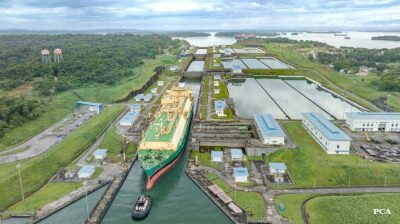The International Monetary Fund has approved the first review of Argentina's $20bn Extended Fund Facility (EFF) programme, clearing the way for a $2bn disbursement to Buenos Aires despite ongoing concerns about the country's critically low foreign currency reserves.
IMF staff reached a technical agreement with Argentine authorities on July 24 following weeks of negotiations, with the fund's executive board expected to meet before the end of July to formally approve the transfer. The decision comes after a mission to Buenos Aires last month and extensive discussions between fund officials and Economy Minister Luis Caputo's team in Washington.
The approval represents a significant milestone for President Javier Milei's libertarian administration, which has pursued an aggressive stabilisation programme since taking office. Argentina received the first $12bn tranche of the 48-month facility in April, with the latest disbursement bringing total funds accessed to $14bn.
"The programme has had a strong start, underpinned by the continued implementation of tight macroeconomic policies, including a strong fiscal anchor and a tight monetary stance," the IMF said in a statement. The fund praised Argentina's transition to a more flexible exchange rate regime and the lifting of most foreign exchange controls, noting these had "proceeded smoothly, despite a more challenging external backdrop."
The positive assessment comes despite earlier warnings from the fund about Argentina's precarious financial position. In a report released earlier this week, the IMF described the country's net international reserves as remaining at "critically low" levels, even as it acknowledged substantial improvements in economic fundamentals since late 2023.
Argentina's economic turnaround under Milei, who took office in December 2023, has been striking. Inflation has continued to decline from peaks above 200%, whilst poverty levels have fallen and the economy has maintained expansion. Most notably, the country has regained access to international capital markets ahead of schedule, marking a significant achievement for an administration that inherited a dire fiscal situation.
The fund's decision suggests it remains confident in Argentina's reform trajectory despite missing reserve accumulation targets that were part of the original agreement. IMF Communications Director Julie Kozack had declined to specify whether the board meeting would occur before the institution's summer recess beginning August 4, saying only that negotiations were at an advanced stage.
"With the fund we have no problem," Caputo told reporters on July 24. "Of course, we're working to reconstruct the level of reserves."
According to La Nacion, government spokesman Manuel Adorni adopted a similarly confident tone at a press conference, stating there was "no problem with the accumulation of reserves" and that "the Fund will have to say whether we are complying or not."
The IMF's statement made no explicit mention of granting Argentina a waiver on reserve targets, though officials reached "understandings on policies aimed at safeguarding achievement of the fiscal anchor, rebuilding reserve buffers, durably reducing inflation and continuing to enhance the clarity and functioning of the monetary framework."
These policies will be "complemented by further actions to create a more open, resilient, and market-based economy," the fund added.
The approval comes at a crucial juncture for Milei's administration, which faces mounting political pressures ahead of the October midterm elections whilst attempting to maintain the structural reforms demanded by international creditors. The president has achieved remarkable fiscal consolidation, including what analysts describe as a five percentage point GDP turnaround in just two months, but reserve accumulation remains a persistent challenge.
The IMF's continued support provides breathing space for Buenos Aires as it attempts to break Argentina's historical cycle of economic crisis and recovery. However, success will ultimately depend on the government's ability to navigate political constraints whilst implementing the exchange rate flexibility and structural reforms needed to attract sustained foreign investment.
Argentina's rocky relationship with the IMF spans decades, with this marking the country's 23rd agreement with the Washington-based lender since 1958. The current programme's durability will serve as a crucial test of whether the Milei administration can finally establish a sustainable path towards economic stability.
News

Protests resume in Serbia over Rio Tinto lithium project
Thousands of demonstrators rallied in the western Serbian city of Valjevo, reigniting protests against Rio Tinto’s controversial lithium mining project.

Kyiv mayor Klitschko and former president Poroshenko face criminal charges
Ukrainian President Volodymyr Zelenskiy has chosen to end what was probably his worst week in office since he was elected in 2019 by sparking a fresh scandal. Prosecutors are preparing criminal charges against two of his biggest political rivals.

CK Hutchison delays $23bn ports deal as US-China tensions grow over Panama sale
CK Hutchison’s $22.8bn ports sale faces delays, with the BlackRock-led consortium talks likely to extend past the July 27 deadline, as the deal draws scrutiny over Panama assets amid rising US-China tensions.

Ukrainian President Zelenskiy backtracks on law enforcement bill following mass protests
President Volodymyr Zelenskiy seeks to restore the independence of Ukraine's anti-corruption agencies after a controversial law gutting Ukraine’s anti-corruption reforms sparked protests.



